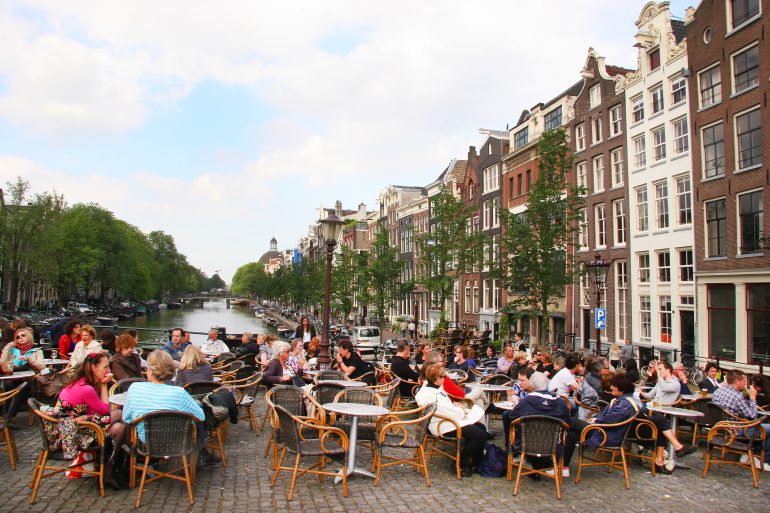To the delight of residents and visitors, especially in the warmer months of the year, many buildings in Amsterdam are adorned with large, beautiful terraces for enjoying the sun, eating and drinking, playing sports and much more. Unfortunately, a sudden and dramatic increase in the taxes charged on those terraces has sent shockwaves through many businesses and driven prices up.
Large increases in Amsterdam
Initially agreed in 2018, but delayed thanks to the Covid pandemic, the recent increase in terrace taxes has seen business owners having to pay considerably more than ever before in terrace tax. In some extreme cases in Amsterdam East, some entrepreneurs are seeing terrace tax increases of up to 112 per cent, meaning they are now paying more than double what they used to pay.
Municipalities have the right to decide what level of terrace tax to levy, so the rates can vary significantly between different municipalities. For example, The Hague charges nothing, but in Amsterdam, most terrace owners must pay 170 euros per square meter. In the case of Amsterdam, the political motive behind the tax may be to do with reducing inflows of tourists by indirectly increasing the prices of products and services in businesses with terraces.
Business owners voice their unhappiness
Perhaps unsurprisingly, the business owners affected by these much higher rates are profoundly unhappy about the policy change. They face paying much more tax themselves or passing the costs onto their consumers by jacking up their prices, neither of which are especially attractive options for those small companies, many of which are already struggling to win and retain customers. The other option is to reduce the size of their terraces, but that would reduce the number of guests that a business can serve.
Yoeri, a bar owner quoted local newspaper De Brug, is paying nine times more than before. ‘In 2019, I paid 350 euros. I will receive a tax assessment of 3,150 euros in 2023. This coincides poorly with my business costs, which have also become considerably more expensive.’ Yoeri’s experience is far from unique. Business owners, already feeling battered by the lasting effects of inflation and Covid, are raising loud opposition to the increased terrace taxes. Horeca Nederland, representing the café and restaurant industry, is coordinating a campaign against the measure by calling on business with terraces to notify the municipality of their objections.
A lesson for the future
Given today’s economic climate, the desire for governments to raise taxes is understandable. But the real-world consequences of the newly increased terrace tax are an apt lesson in the unintended consequences of tax policy. At its heart, taxation has the effect of disincentivising an activity. If you tax something you increase its cost, so people tend to do less of it. If you tax terraces aggressively, inevitably, the result will be less terrace space available to the public.
Terraces fading away might seem like a relatively harmless example of this phenomenon, albeit it probably does not seem insignificant to those directly affected by it. However, other taxes, especially when specific and targeted in the same way, can have a similar effect. Taxing businesses’ profits, for example, might incentivise them to trade less, or even to take their commercial activity elsewhere and pay their tax under a different jurisdiction.
Crucially, in the context of a cost-of-living crisis, high taxes have a profound and disproportionate impact on those with the lowest incomes and the least savings to fall back on. Across Europe, taxes on workers are reaching record high levels. Worryingly for many, governments often see new taxes as a way to tackle other social issues, such as taxing foods like meat to protect the environment, or increasing consumer taxes on vices like smoking, vaping, alcohol or gambling. While those issues require further resources, new or higher taxes seem an easy lever to pull, which may fail to address the core issue while fuelling other problems like the cost of living.
If there is a lesson to be drawn from Amsterdam’s high terrace taxes, it is that increasing tax does not always go the way politicians expect. There are likely to be unforeseen, and perhaps unforeseeable, consequences.
Written by Jason Reed
